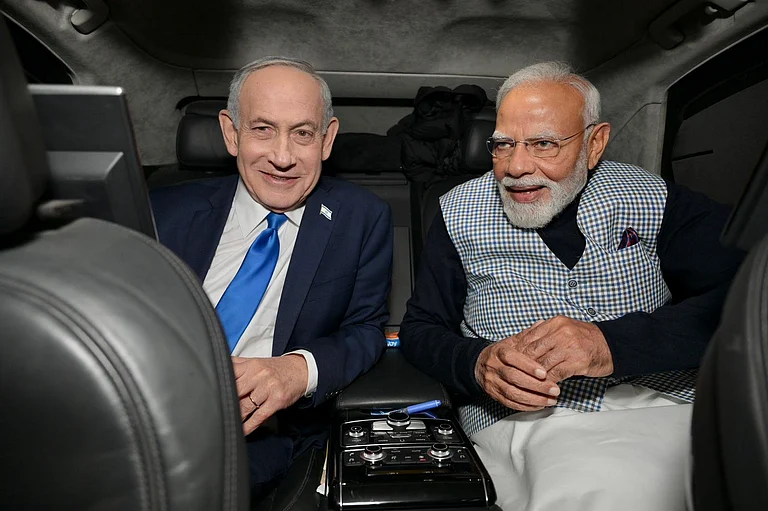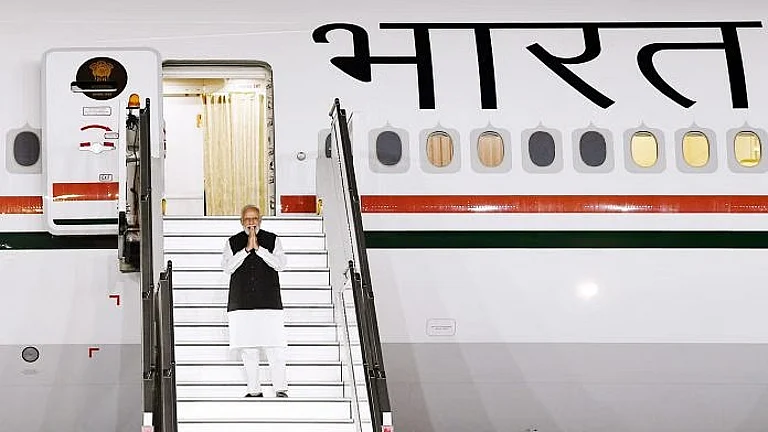Two key hardline parties that have propped up Israeli Prime Minister Benjamin Netanyahu’s coalition government since December 2022, have quit over a dispute on military exemptions for ultra-Orthodox Jews, dealing a blow to his religious-right alliance.
Yet the coalition is not at immediate risk as the 11-member Shas Party has resigned from the government, but will continue to support Netanyahu in Parliament. With the Knesset set to recess on July 27, the Prime Minister will get enough time to regroup and keep the coalition in place, more so as Israel continues to be at war in Gaza, and has now opened a new front in Syria.
Nationalism will come into play at a time when the country is at war. The Shas cleric has given Netanyahu a deadline to find a solution by October 19, when the Knesset reopens. The Prime Minister is now left with just 49 members in the treasury bench, instead of the required 61.
The two ultra-Orthodox parties, Shas and United Torah Judaism, pulled out after tensions peaked over a Supreme Court ruling that religious scholars or Haredi men, as they are referred to in Hebrew, should also do the compulsory military service that all young Israeli girls and boys have to. Their exit has weakened the coalition’s cohesion, but Netanyahu will continue to rule as of now.
Haredi Issue
The orthodox parties want Netanyahu to ensure that religious scholars called the Haredis will not have to do the mandatory military stint. The Haredis have always been exempt from this, but at a time when Israel is into 21 months of war on Gaza, and older reservists have been called back to duty, most people believe that young Haredi men should also enlist and serve the country. But religious parties are adamant that the Haredi men perform an equally important duty of keeping the tenets of Judaism alive. They are essentially serving the cause of Israel and doing a job as important as the IDF.
The Haredi men strictly observe Jewish religious law and separate themselves from Gentiles as well as secular Jews who do not follow the religious law as strictly as they do. These ultra-orthodox groups are an influential segment of Israeli society.
Benjamin Netanyahu has enough time to find a way to ensure that he does not lose power. Being a shrewd political operator, the PM is likely to devise a survival plan for his government.
Corruption Cases
It is not just the Haredi conscription matter that Prime Minister Netanyahu is facing. He is also standing
trial on charges of bribery, fraud and breach of trust in three separate cases, registered four years ago. He is accused of accepting $200,000 in gifts from wealthy businessmen and of granting regulatory benefits to a telecom tycoon in return for favourable coverage.
The cases have been on for four years, but the wily leader has been able to carry on by using legal delay tactics. Critics say that one reason for Netanyahu not wishing to end the Gaza war is to delay the trial. However, the trial has begun despite all attempts to stop. Netanyahu is being backed by none other than the most powerful man in the world - US President Donald Trump, who has spoken out against the 'witch hunt' of the Israeli leader.
Again, in an unprecedented move to show US backing for Netanyahu, American envoy to Israel Mike Huckabee ended up at a Tel Aviv courthouse to attend the hearing.
Trump and his envoy have sent out a clear message that the Israeli judicial system cannot be trusted. This is in line with Netanyahu’s attempts to bring in sweeping reforms of the judiciary. Before the October 7th, Hamas attack, Israeli citizens had been protesting every night for weeks against Netanyahu’s bid to cut the judiciary to size.
The Hamas attack was a low point in Netanyahu’s career. But since then, Israel’s military might has been well established. The general public has supported Israel’s attack on Iran, eliminating Hezbollah and killing the entire top leadership of Hamas, yet the fact that all Israeli hostages are not back has led to countless protests by families of the hostages. Many believe that it suits Netanyahu’s politics to continue the war in Gaza and go against all perceived enemies of Israel.
Netanyahu’s right-wing ministers like Itamar Ben-Gvir, the national security minister and finance minister Bezalel Smotrich want the PM to continue the war. Yet he is under pressure from the US to agree to a ceasefire. Netanyahu will do what suits him best and call elections at a time when his chances of winning are good. So, despite the rumblings in his government, he is likely to ensure that he survives. Elections in Israel are scheduled for next year.






























